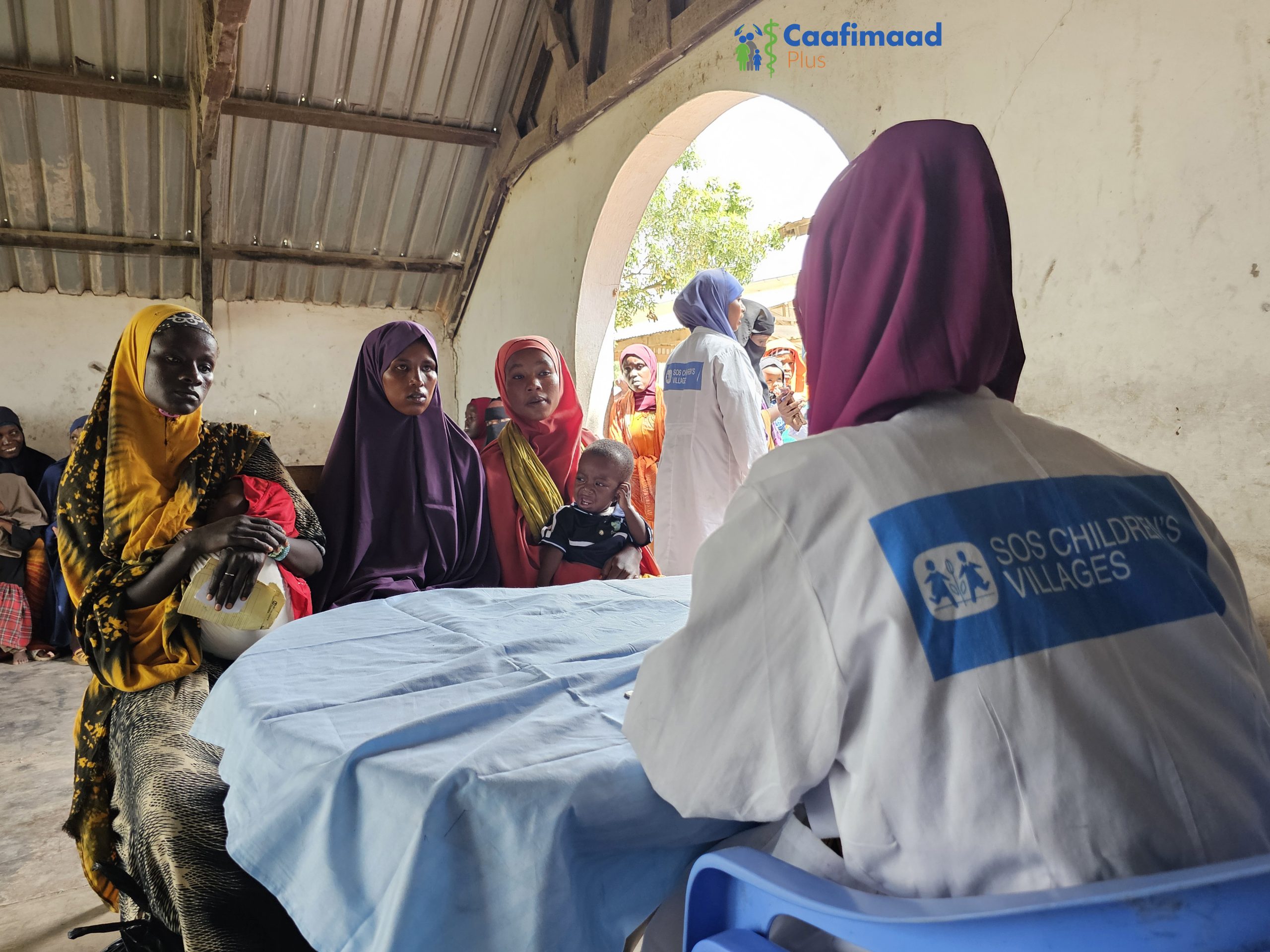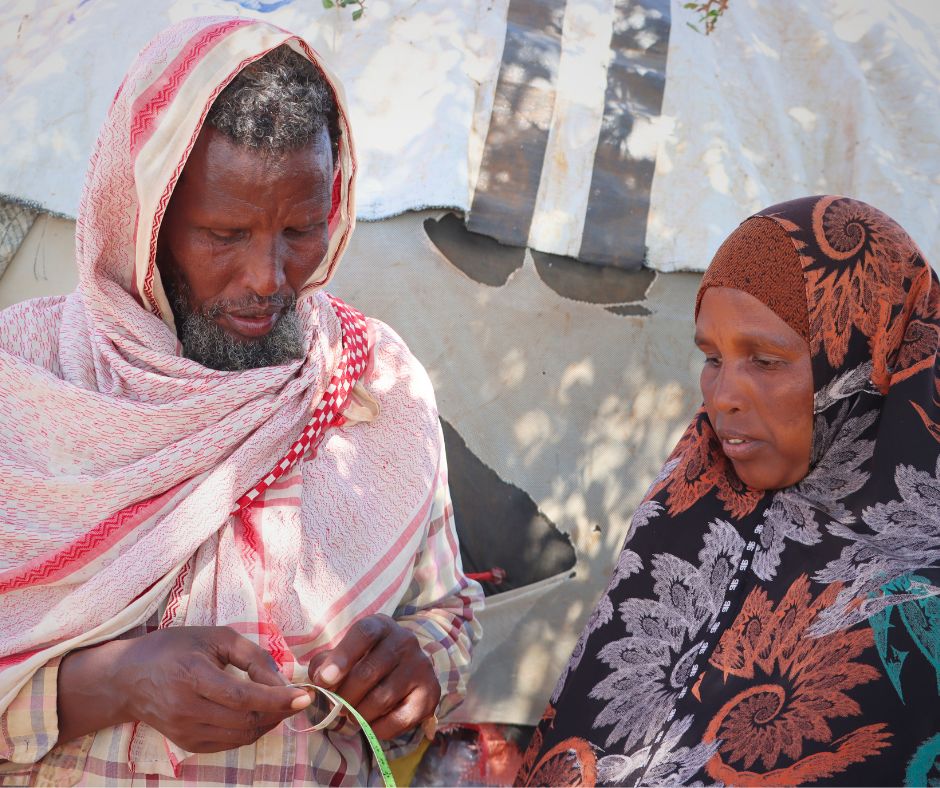Shamsa Ali, a mother from Kismayo, faced her share of struggles after losing her husband during the early stages of her pregnancy. Grieving and shouldering the added responsibility of caring for her children, she made the decision to move to Mogadishu to live with her sister. However, the capital did not offer an immediate solution to her problems.
She was in her first trimester and needed antenatal care. Additionally, her children required meals that were not readily available to her, as she was new to the town.
The mother of three sought help from the nearest hospital—the SOS Mother and Child Hospital in the Heliwa District of Mogadishu. Funded by EU Humanitarian Aid (EU ECHO) through the Caafimaad Plus Consortium, the hospital provided emergency and critical health and nutritional services to over 170,000 people annually, including pregnant women and children.
She received essential supplements such as folic acid, iron, calcium, and vaccinations throughout her pregnancy. With her regular follow-ups, the health workers ensured a safe delivery, and after her child was born, she continued to receive nutritional support. Given the family’s food shortages, this assistance was vital for maintaining their health.
“The support has eased our burdens,” Shamsa says.
“I can now focus on doing everything for my children to ensure they eat and stay healthy.”

Women-led households in Somalia face numerous challenges, as caring for their children and providing sufficient food is a struggle. Access to healthcare and education is limited, primarily dominated by the private sector.
The SOS Mother and Child Hospital serves as a critical lifeline for many women, offering health and nutritional support, including antenatal care, maternal delivery services, outpatient therapeutic feeding, and postnatal care.
Due to the hospital’s strategic location and proximity to vulnerable populations, particularly the displaced, access to healthcare services, such as immunizations for children, has improved over the last five years.
Malyuun, a mother of two from Ceel Tur’ayo, regularly travels to the hospital to ensure her children receive vaccinations and nutritional counseling.
“The immunizations are free, and I need to make sure my children are protected,” Malyuun shares, expressing gratitude for the care provided.
In addition to immunization services, children are also screened for malnutrition and connected to treatment services offered by SOS Children’s Villages under the Caafimaad Plus Consortium.
For Nasra, an internally displaced mother living in a nearby camp, the hospital has been a sanctuary. During a severe drought in early 2023, one of her children developed a critical nutritional deficiency. “We were facing two battles—finding food and keeping our children healthy,” Nasra recalls. When she brought her child to the hospital’s outpatient therapeutic program, she received nutritious supplements weekly.
“The health workers gave us the strength to continue,” Nasra says.
Initially struggling with breastfeeding, she received counseling support from the hospital, along with nutritional supplements, and eventually succeeded.
“Breastfeeding is easy now,” she smiles. “They taught me how to care for myself and my baby.”
The hospital’s impact extends beyond its walls. Trained community health workers visit surrounding communities and internally displaced people (IDP) camps, raising awareness about preventive care and providing health education. These outreach programs are essential for detecting malnutrition, following up on patients, and ensuring that vital healthcare services reach vulnerable populations.
Community health workers also bridge the gap between cultural practices and modern healthcare, ensuring mothers receive care without feeling alienated or judged.
Mogadishu, like much of Somalia, is under immense pressure as families flee environmental disasters and conflict. Rural-to-urban migration has surged, straining the already limited resources of the capital. Despite these challenges, the hospital remains committed to serving, thanks to EU Humanitarian Aid funding.
“Every day, we see more people coming in, each with a heavier burden than the last,” says Yasmin, the nutrition nurse.
The demand for services continues to grow, and funding from EU Humanitarian Aid through Caafimaad Plus has been crucial; however, the hospital’s needs are increasing. Sustaining operations and continuing to offer life-saving services requires ongoing support.
For Shamsa, Malyuun, Nasra, and countless others, the SOS Mother and Child Hospital offers more than just medical care. These stories underscore the essential role the hospital plays in the lives of Somalia’s most vulnerable.

In 2023 alone, the SOS Mother and Child Hospital successfully delivered over 7,793 babies, and more than 85% of malnourished children treated through its outpatient therapeutic program have fully recovered. These measurable impacts highlight the life-saving nature of the Caafimaad Plus Consortium interventions, proving their effectiveness in improving health and nutrition in the region.
With EU Humanitarian Aid support, the Caafimaad Plus Consortium will ensure that more women and children receive the care they need. As the largest health and nutrition consortium in Somalia, of which SOS Children’s Villages is a member, it provides critical life-saving support to crisis-affected families in South Central Somalia. Continued support is vital for ensuring the survival of mothers and children in crisis-affected areas of Somalia.







